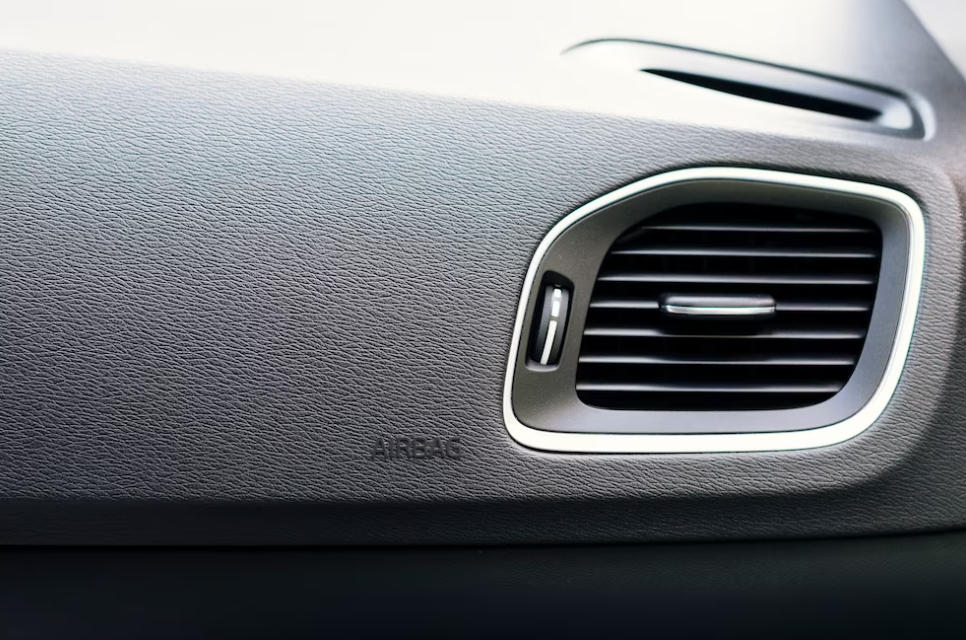Entering your car on a scorching summer day truly makes you value the blessing of a functional A/C system. Don’t wait for the heat to become unbearable, preventing even a drive with windows down. Take a proactive step by inspecting your A/C now, ensuring ample cool air to conquer the heat and relish comfort throughout the summer season.
Prior to recharging your car’s AC system, understanding the refrigerant type your system demands is crucial. Legacy refrigerants, due to their ecological impact, have given way to more eco-friendly choices. The prevalent refrigerant, R-134A (HFC-134a), is widely used, while newer vehicles might employ R-1234YF (HFO-1234yf). In rare cases, older cars could still rely on R-12 (Freon).
The simplest approach is to examine your vehicle’s A/C system nameplate located beneath the hood. This informative guide will equip you with the knowledge needed to make the right choice and ensure your car’s A/C system operates optimally, providing you comfort even on the hottest of days.
| Refrigerant | Common Name | Vehicle Usage | Environmental Impact | Availability & Considerations |
|---|---|---|---|---|
| R134a | HFC-134a | Modern vehicles | Low flammability, eco-friendly | Widely used, concerns about greenhouse gases and atmospheric persistence, prohibited in post-2021 US cars |
| R1234yf | HFO-1234yf | Cars from 2014 onwards | Eco-conscious choice | Environmentally friendlier, incompatible with R-134a hoses, potential leaks in older vehicles, consider Avalanche Gold refrigerant for leaks |
| R12 | Freon | Former standard, classic cars | Ozone layer depletion concern | Prohibited in new US cars since 1994, classic cars may use legally, consider transitioning for improved cooling |

1. R134a
- Commonly called HFC-134a
In the majority of today’s vehicles traversing the roads, it’s the R134a refrigerant that ensures the A/C system delivers cool relief during sweltering days. Chosen for its safety with low flammability, coupled with its environmental friendliness, R134 refrigerant has become a staple in nearly every car manufactured since 1994.
Nonetheless, “kinder” bears significant weight. By contemporary standards, its environmental impact falls short. R134a’s substantial greenhouse gas potential and its prolonged atmospheric presence conflict with modern ecological norms. Consequently, vehicles sold in the US post-2021 are prohibited from utilizing this refrigerant variant.
2. R1234yf
- Also called HFO-1234yf
If your car was acquired between 2014 and the present, there’s a high likelihood that R-1234yf refrigerant is necessary. Just like with earlier systems, attempting to use an R-134a recharge hose on an R-1234yf coupler won’t suffice. This refrigerant option is notably eco-friendlier and is readily available at your local auto parts store for DIY recharging.
R-1234yf-equipped vehicles aged beyond 4 to 6 years or that have faced accidents might experience refrigerant leaks. If you require additional refrigerant and wish to address these leaks, consider exploring our Avalanche Gold refrigerant infused with Smart Chip technology. It provides a secure, effortless, and precise A/C recharge solution.
3. R12
- Commonly Known as Freon
R12 reigned as the automotive refrigerant standard for numerous years, valued for its efficiency and affordability. Yet, its concealed detriment soon emerged: a contribution to the drastic depletion of the ozone layer. In 1994, its use was prohibited in all new cars sold within the US.
Human ingenuity, however, excels at finding solutions. Global regulations against Ozone Depleting Substances have paved the way for the ozone layer’s recovery. The EPA confirms that these regulations are poised to usher in a near-complete ozone layer resurgence by the mid-21st century.
If you own a classic car, it might still employ R12 refrigerant, legally drivable and all. However, to achieve superior cooling and simplified A/C servicing, consider adapting your older vehicle to function with a contemporary refrigerant variant.

Conclusion
In the quest for a comfortably cool ride during sweltering summers, selecting the right refrigerant for your car’s A/C system is paramount. Whether your vehicle relies on the widely-used R-134A, the eco-conscious R-1234yf, or even the legacy R-12, understanding their nuances ensures optimal cooling performance. As we navigate evolving environmental standards, this choice becomes not just about comfort, but also about treading lightly on our planet. So, before the heat becomes overbearing, take a moment to equip yourself with the knowledge to keep your car’s A/C running efficiently and in harmony with our changing world.
